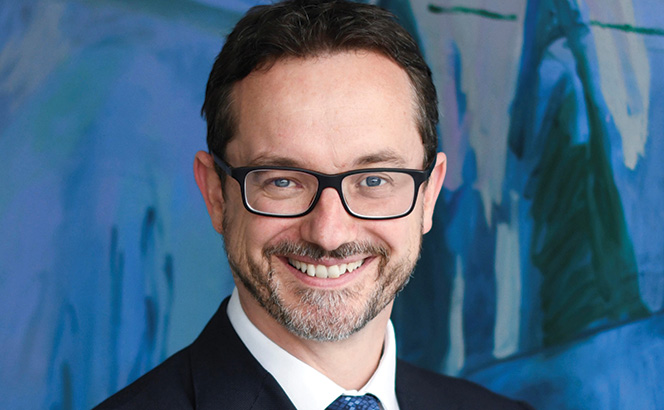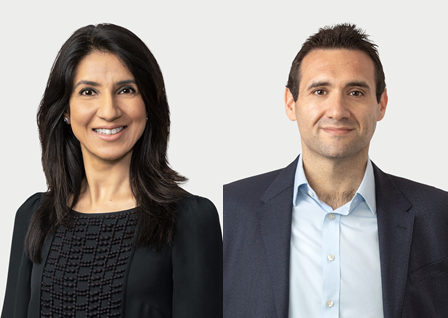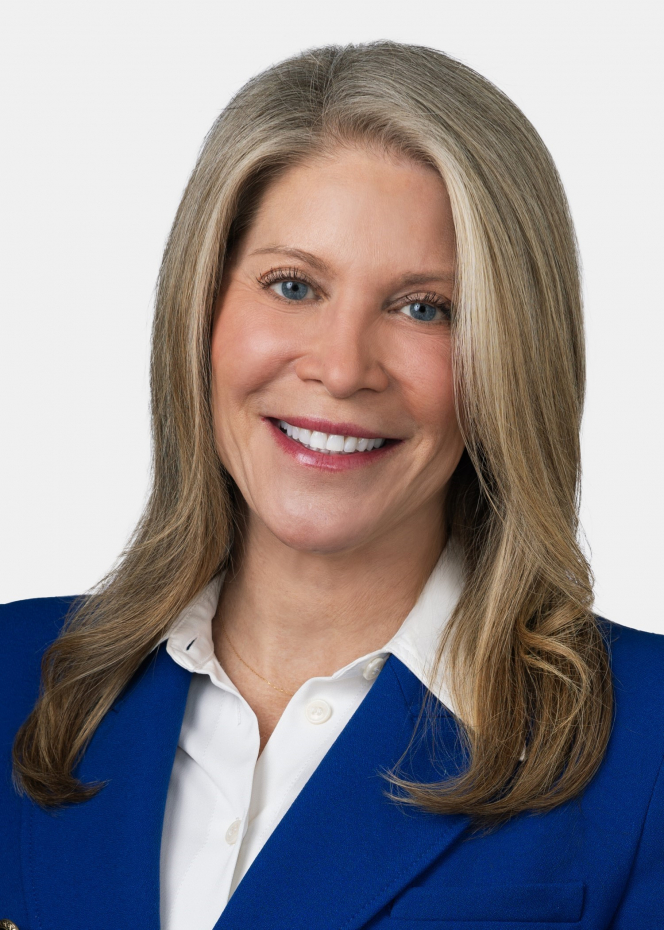‘You’re never done. I’ve been at this for 14 years and I’ve still got a long list of things to do. It makes you wonder what you’ve been doing this whole time,’ muses Simmons & Simmons managing partner Jeremy Hoyland as he prepares to step down from his leadership role.
The City HQ of the firm he’s led since 2011 is quiet the Friday afternoon that Legal Business comes to visit; fitting for the softly spoken, but reflective, Hoyland. A stand at reception with copies of The Big Issue serves as a gentle signpost that there is life beyond the bottom line at Simmons.
When LB sat down with Hoyland for his first leadership interview back in 2011, aged 43, he was chomping at the bit to start ticking off a lengthy to-do list he had drawn up. Three terms later, while the list remains unchecked, Hoyland is clear on what he feels he has achieved.
‘One of the first things I said to the partnership was that we were going to face up to uncomfortable truths. We had huge strengths and what I wanted to do was focus on those strengths.’
‘You’re never done. I’ve been at this for 14 years and I’ve still got a long list of things to do. It makes you wonder what you’ve been doing this whole time.’
For Hoyland that’s meant routing the firm to a clear sector focus rather than trying to be all things to all people.
Carrying on the work his predecessor Mark Dawkins started, under Hoyland the firm has focused on asset management and investment funds; financial institutions; healthcare and life sciences; and technology, media and telecoms (TMT).
Pointing to the strategy’s success, Hoyland says: ‘A huge portion of what we do in corporate is for the sector clients. Transactional work for funds is a huge part of our practice, and many of our best deals fall within the sectors. But that’s not how a traditional City corporate practice is aligned, and it certainly isn’t where Simmons was in 2010.’
Income from the four sectors now makes up more than 80% of firm-wide revenues, with financial institutions the biggest contributor (at around 32%), followed by asset management (28%), with healthcare and TMT each bringing in around 10% based on LB estimates.
This focus has had a clear impact on results. Under Hoyland’s leadership, Simmons’ revenue increased from £251.7m in 2011-12 to £574m in 2023-24—a 128% rise. Meanwhile, PEP has also more than doubled, climbing by 102% from £529,000 to £1.07m over the same period. The increase from the point at which Hoyland officially assumed the managing partner position is even steeper, rising 140% from May 2011, when PEP was £445,000.
According to both Hoyland and former partners, just as important as the firm’s sector realignment has been Hoyland’s ability to help Simmons – and its partners – feel comfortable in their own skin.
‘Before, we weren’t clear about the advantages [our sector focus] gave us and what it meant for people to fit within those sectors. If you’re a finance lawyer, it was always pretty obvious how you fit. If you’re a litigator or a corporate partner – maybe not so much,’ says Hoyland.
As one former partner comments: ‘Before Jeremy, the strategy was “How can we be more like this group of firms?” or “How can we overtake that group of firms?”’
Hoyland took up the mantle in the wake of failed merger talks with Mayer Brown in 2010 and, while it has long been assumed that a Simmons merger with a US firm was inevitable at some point, it hasn’t happened.
Hoyland maintains that no substantial talks have taken place during his tenure. That’s not to say there haven’t been opportunities though.
‘One of Jeremy’s great strengths is saying no,’ says a former partner, who suggests that Hoyland has turned down multiple approaches during his time in charge.
So how does Hoyland think his firm is positioned now? During his time at the helm, the battle for talent has grown ever more competitive, particularly over the last five years. And it’s clear that while Simmons’ 50% pep growth over this period is impressive, it lags behind those at the top of the market.
Hoyland acknowledges that others can outgun Simmons looking at financial metrics alone but maintains that success is about more than just money. ‘If you only compete on money there’s always some firm that is more profitable than us; we have to hire people for whom money is not the only thing they are looking for.’
‘I’m not sure the partners have always enjoyed all of my emails, but taken in the round, I think it’s been a good ride.’
He points to 32 lateral partner hires globally in 2024 as evidence of Simmons’ success. Fourteen of these hires were in London, with recent recruits including Clifford Chance’s former head of UK real estate construction, Marianne Toghill, and DLA Piper’s head of UK competition, Sarah Smith.
‘If your client base is in one of our sectors, then this is a better platform for you than most other firms. And it’s also an extremely good place to work,’ he enthuses.
Hoyland argues that the ‘super profitability’ at the top of the market has left a gap for firms like Simmons, with competitors pricing themselves out of certain markets and clients. However, he worries about the sustainability of this dynamic and the impact it may have on both lawyers’ wellbeing and how the industry is perceived externally.
He laments the fact that none of his three children so far want to follow him into the career he loves, put off by what they see as the industry’s ‘crazy expectations’.
Not that Hoyland is going to have too much time for regrets. While his time as managing partner is coming to a close in April, Hoyland’s journey with Simmons is not. He is set to remain a partner but will relocate to the firm’s Milan office after the summer to take up a new role that will see him travelling around the firm’s European offices and helping partners to pitch together for more cross-border business as well as working with clients to identify services they would like to see as Simmons expands in Europe.
Describing himself as a ‘details person’, he admits that his desire to be managing partner was partially driven by being ‘sufficiently arrogant to want to be in control, to make decisions, and to manage the purse strings,’ meaning that letting go may be hard.
With his successor yet to be decided, Hoyland acknowledges that he is ‘absolutely’ going to find it difficult watching someone else do his old job. He mentions a recent conversation with a former magic circle managing partner:
‘He said that when he finished it felt physically like someone had lifted the weight of his shoulders. I wonder whether I’m going to feel like that. I don’t feel like that now but maybe I will. I sort of hope so.’
And, as to how his time as managing partner will be remembered at Simmons?
‘I hope I’ll be perceived to have been successful and to have made a contribution to the firm. I’m not sure the partners have always enjoyed all of my emails, but taken in the round, I think it’s been a good ride.’
Jeremy Hoyland Bio:
Sep 1991 – Joins Simmons
April 1997 – Makes partner
April 2005 – Takes up leadership of financial markets team,
May 2011 – Begins first term as managing partner
April 2025 – Due to step down as managing partner and transition to a new EU role.
tom.cox@legalease.co.uk






















